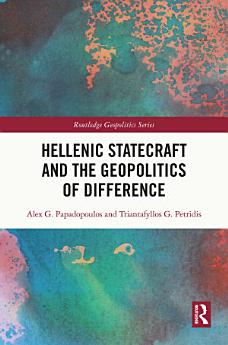Hellenic Statecraft and the Geopolitics of Difference
About this ebook
It examines Greece’s central role in shaping the state system, regional security, and nationalisms of the Balkans, the Black Sea, and the Eastern Mediterranean regions. Understanding the Greek State's social constitution helps learn about the past and present intentions and strategies as well as local, national, and European notions of security and identity. The book looks at the relation of subaltern communities to state power and the state’s ability and willingness to negotiate difference. It also explores how the State’s identity politics shaped regional geopolitics in the past two centuries. Chapters present case studies that shed light on the Hellenization of Jewish Thessaloniki, the Treaty of Lausanne’s making of Western Thrace’s Muslim minority, the role and modes of settlement, urbanization, and ‘bordering-as-statecraft’ in Eastern Macedonia and Western Thrace, and the politics of erecting the Athens Mosque, the first officially-licensed mosque outside Western Thrace since Greek Independence.
With examples from fieldwork in Greek cities and borderlands, this book offers a wealth of primary research from geographers and historians on the modern history of Greek statehood. It will be of key interest to scholars of political geography, international relations, and European history.
About the author
Alex G. Papadopoulos is professor of urban and political geography at DePaul University. He studies the contestation of urban space in Europe and the United States. His urban work includes studies on Brussels, Saint Petersburg, Istanbul, and Chicago, and the political geographic research entangles ‘the urban’ in works on SE European geopolitics.
Triantafyllos G. Petridis, Director at the 3rd Secondary School in Athens, Greece, is an educator and independent researcher with degrees in history, archaeology, and political science. He has worked extensively on minority education in Greece, the critical teaching of history, and inter-communal reconciliation based on new pedagogies and curricula.





